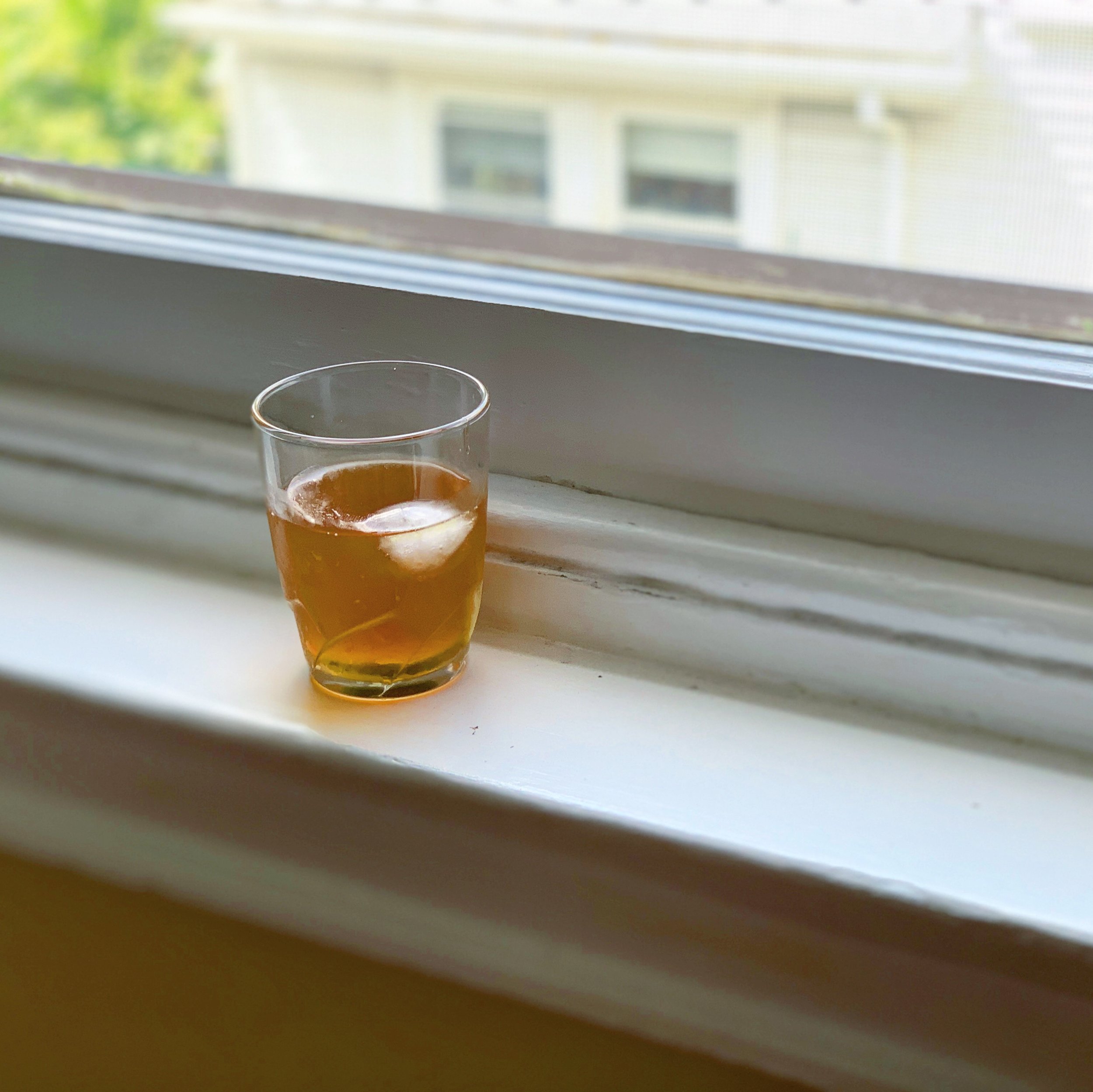There’s an expression I was introduced to back in my trumpet-playing days: faire vivre les silences, or “make the silences live.” This appears to be a term used with some frequency in French music criticism, particularly in the context of the jazz and jazz-adjacent branches of the popular music tree. I heard it in the context of the classic funk that I had been steeping myself in at the time. Funk is all about what’s absent—taking the barely-there ghosted notes of the previous generation’s bop and turning them into a pointillistic flurry of sixteenth and thirty-second rests. The precise articulation of the horns on a tune like Some Skunk Funk makes even the smallest absence of a note in the middle of an otherwise fluid line ring like an enormous, hollow bell.
We also talk about funk in cocktails—that dank, earthy flavor that usually arrives hand in hand with umami in food, and in alcohol can appear in everything from pét-nats to lambics. Everyone’s palates are different, but to me, funk often tastes like a flavor that’s had something else subtracted from it—sweetness turned dry, but still retaining some of the mouth-clinging unctuousness of sugar. I find cocktails that play with funkiness are often an exercise in faire vivre les silences.
From an ingredient standpoint, the Ti’ Punch looks like someone forgot the rest of the recipe. If you can cynically call an Old Fashioned nothing more than “flavored bourbon,” the signature cocktail of the island of Martinique is simply “rhum agricole with a suggestion of lime and syrup.”
The drink is essentially a wide open stage to allow the rhum agricole to shine. Without genuine rhum agricole from Martinique, it simply isn’t a Ti’ Punch. This crisp, grassy—and yes, funky—spirit is distilled directly from sugar cane juice, rather than molasses, like most Jamaican or Cuban rums you might be familiar with. (Rhum agricole—or “farmer’s rum”—owes its existence to Napoleon’s bizarre obsession with sugar beets, which led him to prohibit the importation of sugar from the Caribbean in 1813. Sugar farmers on Martinique began distilling rum from pure cane juice in order to make use of the sugar that could no longer be sold to France.)
A proper Ti’ Punch is all about what’s absent. Minimal sweetener, minimal citrus, no bitters, aromatized wines, or liqueurs. Even the preparation is sometimes omitted; apparently, when you order a Ti’ Punch at some bars in Martinique, you’re presented with a bottle of rhum agricole, some cane syrup, a lime, and a knife, and are expected to prepare your own.
But like the tiny hiccups of silence in a funky horn riff, everything that’s not present in the Ti’ Punch brings to life what you do have. It’s a dangerously quaffable drink that’s ever-so-slightly vegetal with a rich undercurrent of sugar cane and a pure, crystalline note of citrus on the nose. Forget all received wisdom that says you shouldn’t drink hard alcohol in very hot weather. A Ti’ Punch is absolutely sublime when it’s sweltering, tasting simultaneously exquisitely crafted and effortlessly dashed off. Make the silences live.
Ti’ Punch
2 oz. rhum agricole (aged or unaged)
1/4 oz. cane syrup or raw sugar syrup
Lime
Cut a coin from the side of a lime so that there are equal amounts of skin and flesh. Squeeze into a small glass, then add rhum, syrup, and one ice cube and stir to combine.

